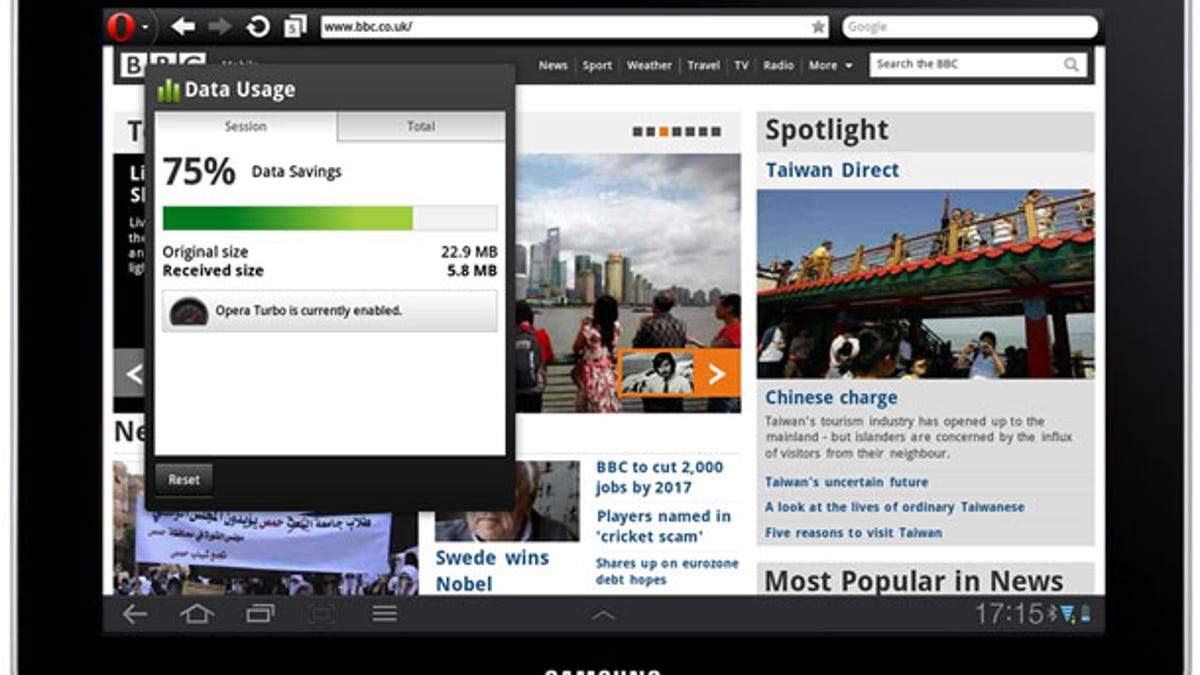Opera Mobile 11.5, Mini 6.5 spotlight data savings
Wondering how much data Opera's servers are sparing from your data budget? Opera's newest mobile phone browsers for tablets and phones will tell you.

OSLO, Norway--Opera Software today released new versions of its mobile browsers, Opera Mini 6.5 and Opera Mobile 11.5, which show users exactly how much of a data-plan diet the software is enabling.
One of the top selling points of Opera Mobile and Mini is that when a person loads a Web page, Opera's servers fetch the data, boil it down, and send a smaller version to the mobile phones or tablets on which the browsers are running. That can save a lot of data, which is a big deal both for mobile operators whose networks are afflicted with exploding data traffic and for and subscribers with data caps.
Opera Mobile and Mini now can show exactly how many megabytes Opera servers retrieved with the original Web site, then the amount sent to the mobile browser.
"How many gigabytes you use may not be important at home, but it is important at a hotel, or with tablets and mobile device with a SIM card, or, God forbid, if you're traveling abroad and don't have a cheap roaming feature," said Christian Krogh, Opera's chief development officer, at the company's Up North Web event here.
The new versions are due to arrive today starting at 5 a.m. PT. for Android phones. Other versions will arrive in the coming days and weeks, Krogh said.
"We'll roll them out as fast as we can," he said.
Opera Mini and Mobile take different approaches to how Opera's proxy servers assist browsing. With Opera Mini, the server processes all the Web page, including HTML, CSS, and JavaScript code, and sends down a boiled-down, easy-to-display version. Opera Mobile, though, processes the code with its own browser engine, so the proxy servers mostly are used for tasks such as shrinking graphics to smaller mobile screen sizes.
That difference means Opera Mobile is suited chiefly for higher-end phones and tablets, whereas Opera Mini will work on many, many more devices. One big difference in practice is that interactive, dynamic Web sites become more static with Opera Mini.
The proxy-server approach got new attention with Amazon's announcement of its Silk browser, which uses a hybrid approach that dynamically decides how much processing to undertake on a server and how much to undertake on the company's Kindle Fire Amazon tablet.
Also coming with Opera Mini 6.5 are improvements that make Web pages look more faithful to the original, Krogh added.
Right now, more than 140 million people use Opera's proxy servers each month, the company said.
Also at the Up North Web event, Opera showed off an alpha version of Opera 12, a hardware-accelerated browser due to ship by the end of the year.

